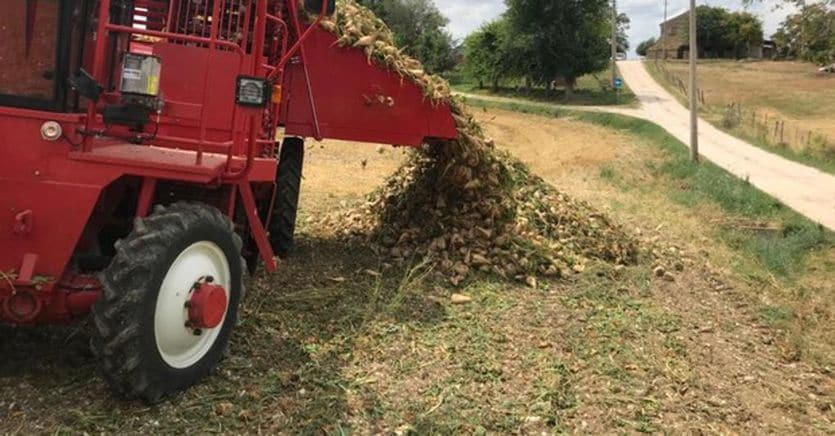Biomethane from beet waste. The energy challenge, in what has been defined as the shortest supply chain in the world in which beetroot reaches biohydrogen, will start from Uras, in the province of Oristano.
An investment of 48 million
In the peripheral area of the country, with an investment of 48 million euros, the plant of Tecnoproject Biometano will be built, the special purpose company born from the partnership between Ekoinnova and Tecnoproject. The program of interventions foresees the construction of a 1300 m3/h plant fed by waste from the processing of sugar beets deriving from the production of the sugar refinery present inside the plant. «In January we will present the definitive project – says the manager Federico Meloni – and it is an intervention that foresees an investment of 48 million euros and the creation of what can be defined as the shortest supply chain in the world».
A short supply chain
Because the cultivation of sugar beet leads to the production of biohydrogen. The plant will annually produce about 4,200,000 kg/year of biomethane and about 300 hectares of beet cultivation land are needed to feed the plant. The biomethane produced will then be converted into biohydrogen in the processing center of the Blue Vector service station (hydrogen, methane and biomethane) located near the plant which aims to develop these fuels for the near future which will lead the planet towards the energy transition.
Training and cultivation
Inside the complex there is also a part called the yellow kilometer area, where there will be a small campus for “the education of children on the subject of energy”. About 30 people will be hired in the production cycle with the involvement of the agricultural entrepreneurs of the Medio Campidano. For cultivation, the estimated production of sugar beet is 56,750 tons per year, while the production is estimated at 7,500 tons per year of sugar.
Technology and experimentation
«In our team – argues the project manager – there are skills to pack a project of great technological value and innovation, thanks to some applications of our study and development. For the beet processing sector we are working with specialists in the sector in order to have an efficient system in line with the plant’s production. The already processed beets are transported with an automated belt directly to the loading point of the plant, thus avoiding continuous truck movements to bring the matrices (food processing by-products) which are used to feed the biomethane plant». It is, as the manager adds, «the first Biomethane plant which it then produces, through a transformation process through one of our converters into biohydrogen».
